UNICEF Yemen: Ensuring a safe environment for vulnerable children in Yemen
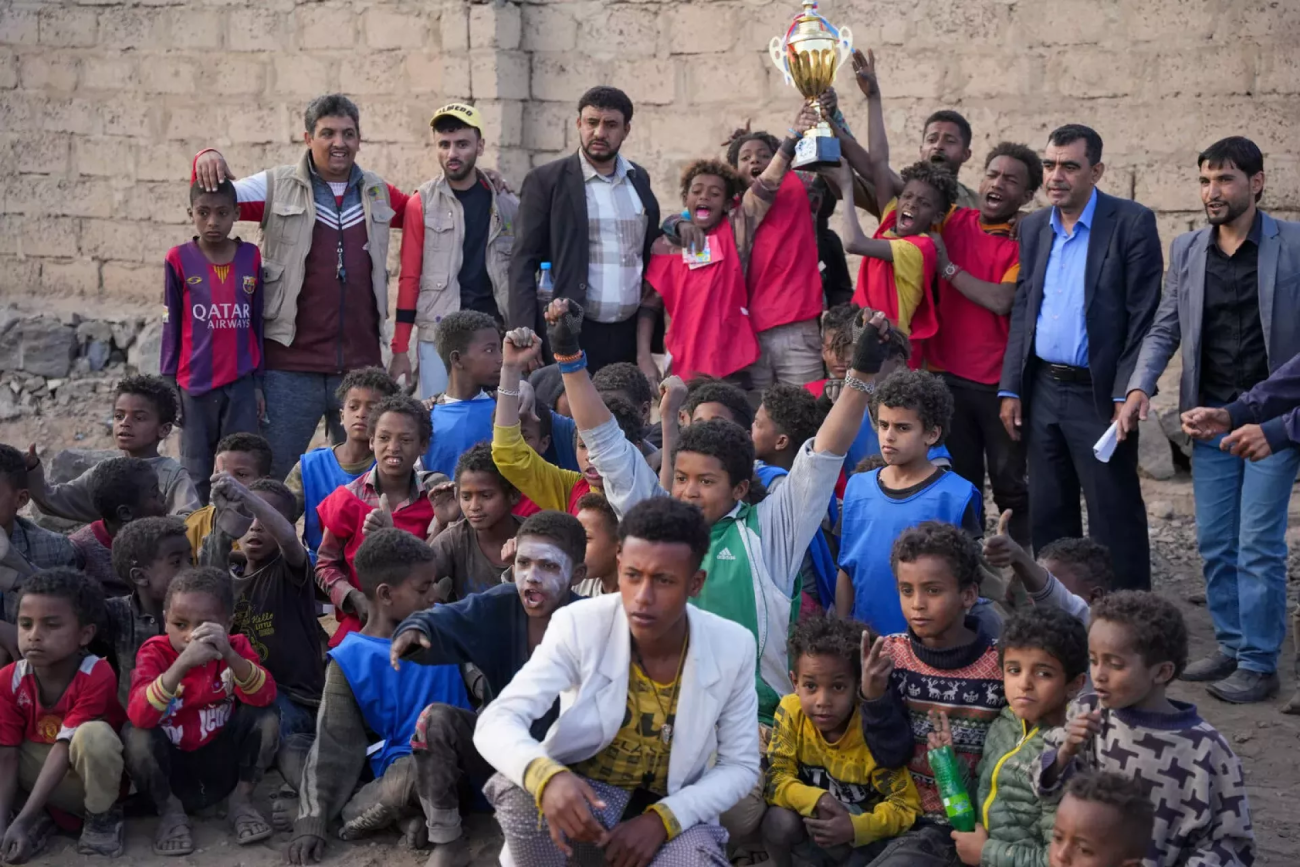
UNICEF has implemented a set of initiatives to create a safe and nurturing environment in Amran City
To protect children from various forms of harm, UNICEF has implemented a set of initiatives to create a safe and nurturing environment in Amran City. These initiatives were created to target children who experience child labor, children who have been separated from their families, and children who have dropped out of school, regardless of whether they are IDPs or from the host community.
“The activities undertaken within the Case Management and l Psychosocial support project, involve various activities. This includes the establishment of children-friendly spaces designed to protect and facilitate children’s participation in a diverse range of psychosocial support activities including recreational, art, sport, counseling, vulnerability identification and referral activities,” says Faris Saleh Al-Qusaili, The Child Protection Project Coordinator and an employee at the Ministry of Labor and Social Affairs in Amran.
“In addition, there are activities that aim to economically empower adolescent girls and women through vocational training in sewing, accessory making, and the production of fragrances and perfumes,” adds Faris Saleh.
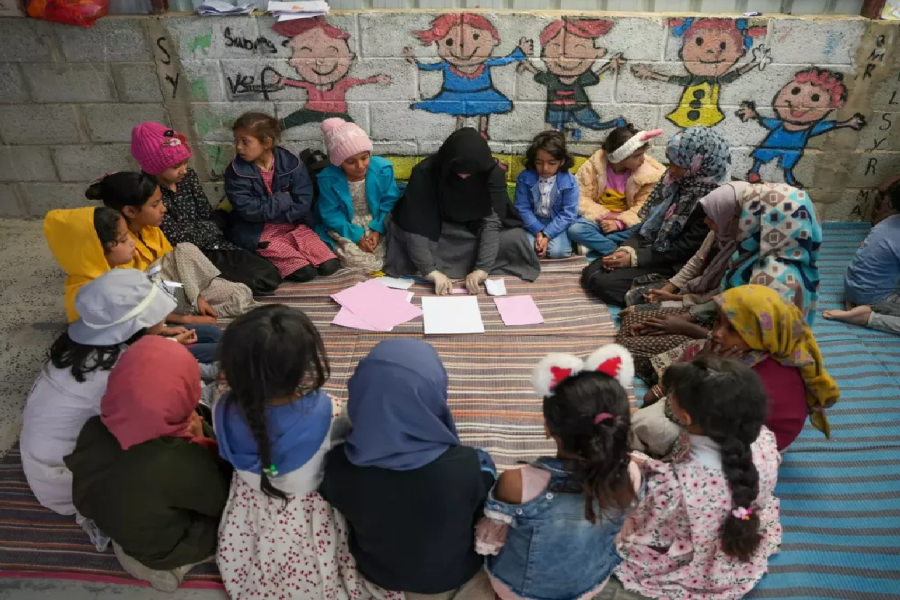
7,500 children received psychosocial support by participating in different activities in the friendly space supported by this programme at the Community Centre in Amran City.
“The psychosocial support activities aim to identify cases of children suffering from trauma, cumulative psychological stress/disorder and to help them overcome it,"
Weam Omer Saeed Al-Absi, a facilitator at the children-friendly space in Amran City
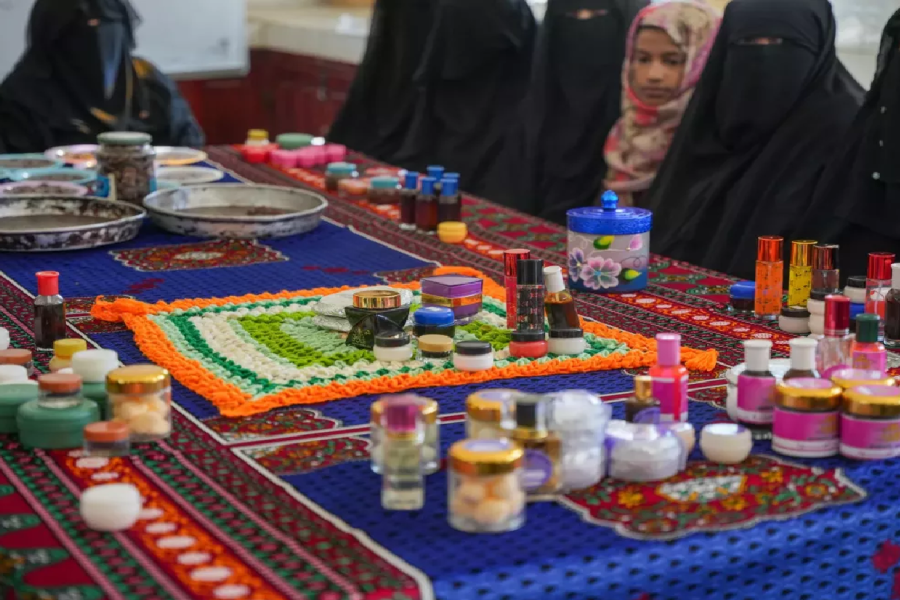
As part of the psychological support programme, a vocational training was provided to women living at Al-Tarbeeah IDPs camp to help them earn an income for themselves and provide for their children and families.
Fatima Saeed, a 20-year-old who lives in the Baker IDP camp, was trained in perfume making and managed to sell her products to support her family who live in a difficult situation.
“After one week of the training, I began work. I bought three mixtures to begin, a mixture of perfumed cream and two perfume mixtures. This training lasted for three weeks. During training, my brother was ill. I began working and selling perfumes to buy him medicine.”
Fatima Saeed
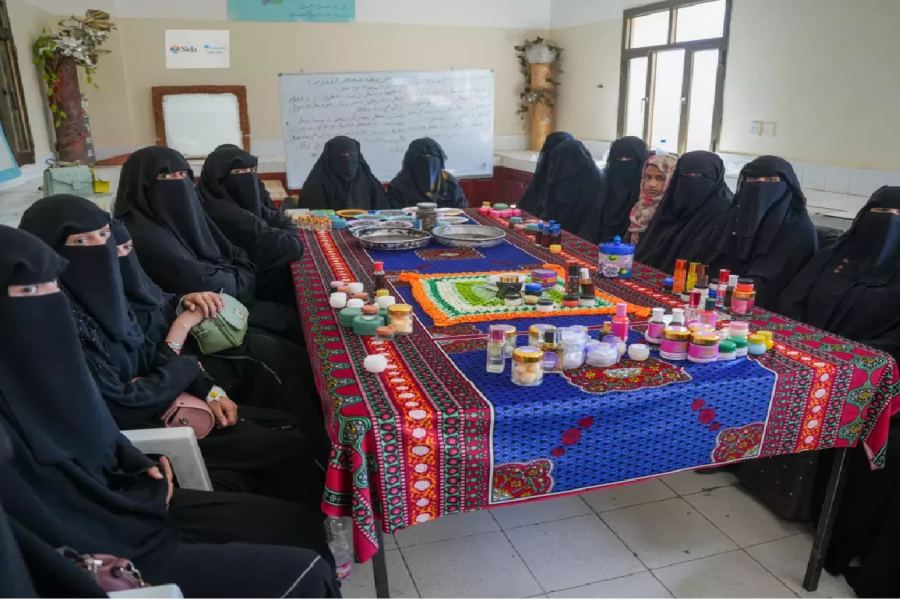
The training targeted IDPs‘widows, and mothers who are the sole providers for their children and families. The products they learned to make during the training sessions are in high demanding the local market which makes it easier for these women to sell.
One of the main objectives of the training is to support women to bear the costs of education for their children. “One of the women learned the art of incense making and has benefited greatly from the training. Now, she is not only able to send her child to school but also provide for her family through the products she makes and sells,” says Mona Mohammed Saleh, a 38-year-old trainer who works at the Community Centre for Child Protection and Family Guidance in Amran city.
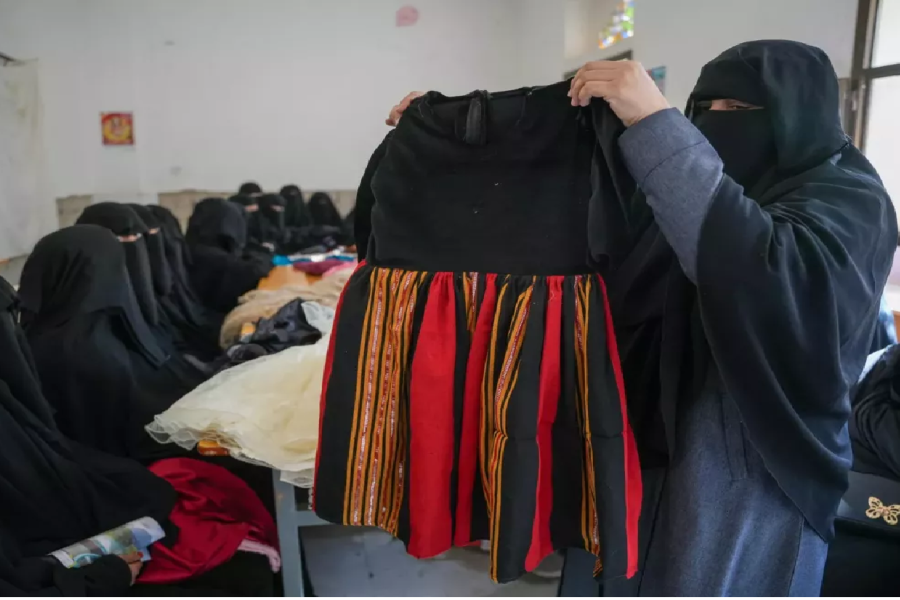
Women showcase their newly acquired sewing skills through the production of various clothes and dresses. Not only do these accessories serve as a source of income for the women, but they also symbolize empowerment and resilience in the face of displacement and disability.
“The training includes all kinds of sewing, including women's and kids’ clothes, as well as robes. We trained around 140 trainees, including disabled, to protect families.”
Yousra Sinan Saleh, sewing trainer
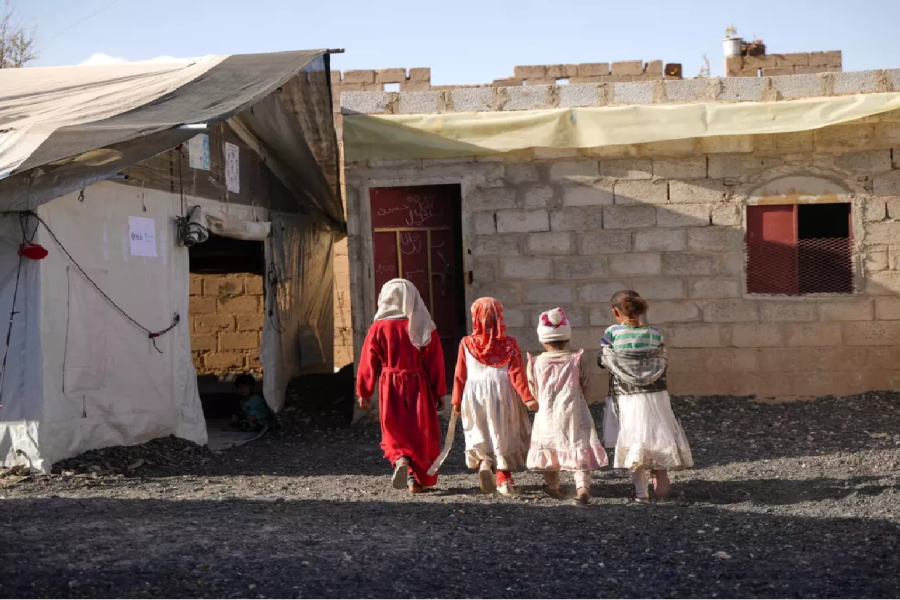
The Family Protective Centre in Amran, Yemen, offers integrated protection and other complimentary services to children and women in Al-Tarbeeah IDPs camp. This centre offers a beacon of light amid the challenging environment of IDPs, offering essential services that safeguard their rights and well-being.
This centre is supported by UNICEF and funded by Sweden.

